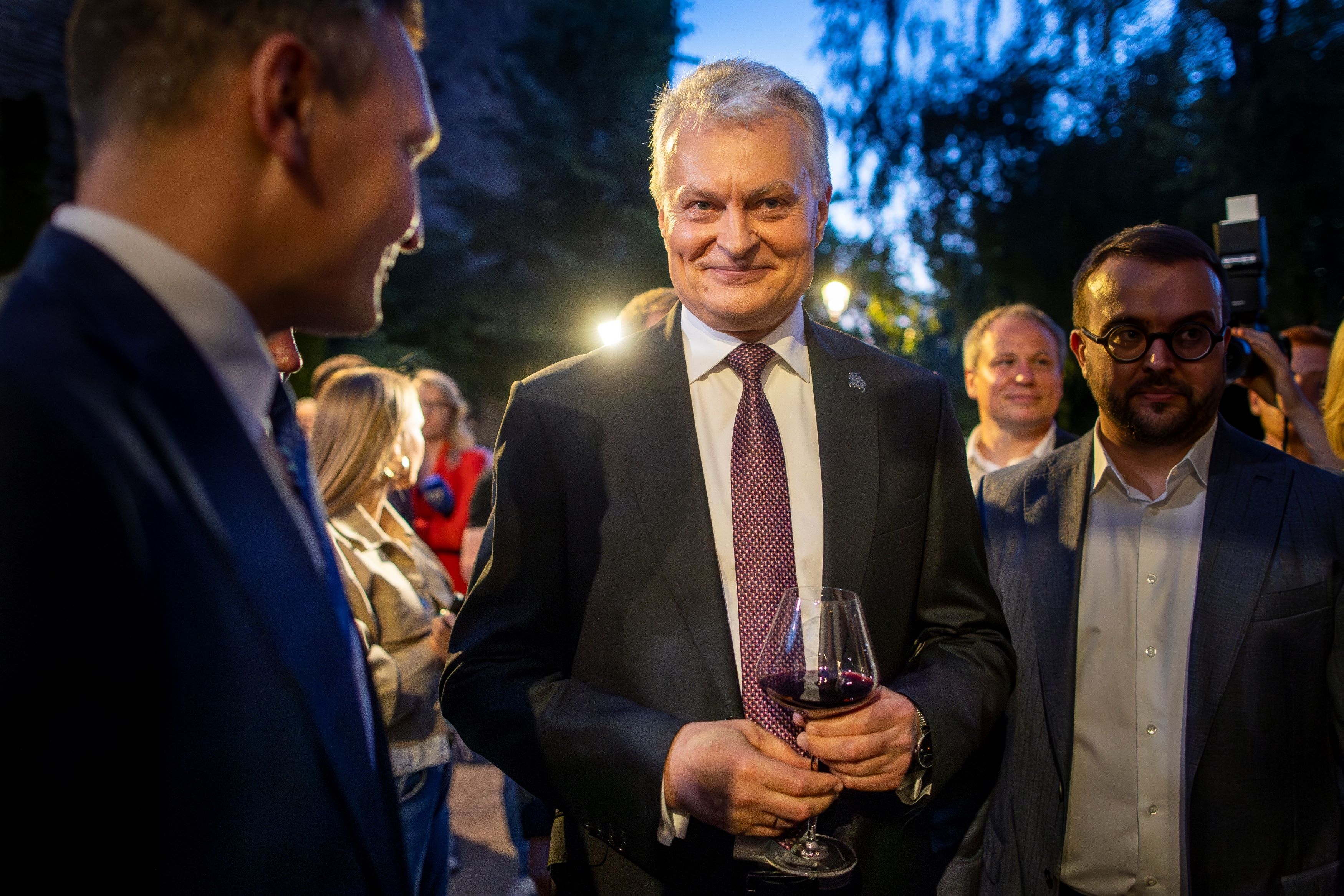
VILNIUS - Incumbent President Gitanas Nauseda has won Lithuania's presidential election, beating his rival Ingrida Simonyte in the run-off on Sunday, data from the country's Central Electoral Commission (VRK) show.
The latest data announced by VRK show that in the total of 1,895 stations, Nauseda gathered 74.43 percent of voters' support, while Simonyte ranked second with 24.06 percent.
Nauseda has declared his victory as he secured his second five-year term. He told jubilant supporters in the capital Vilnius that he will continue working on the country's defense capabilities.
Both Nauseda and Simonyte support increasing defense spending to at least 3 percent of Lithuania's gross domestic product, from the 2.75 percent planned for this year
"Lithuanian independence and freedom is like a fragile vessel which we need to cherish and keep from cracking," he said.
Nauseda also told Baltic News Service (BNS) that the Lithuanian people have given him “a great mandate of trust”.
“I am well aware that I will have to cherish this credit of trust."
READ MORE: Lithuania's incumbent president, PM head to presidential runoff
Simonyte, the incumbent prime minister, has conceded her defeat and congratulated Nauseda on his victory, BNS reported.
Sunday's run-off poll was held after neither candidate secured more than half of the votes in the first round on May 12.
Both Nauseda and Simonyte support increasing defense spending to at least 3 percent of Lithuania's gross domestic product, from the 2.75 percent planned for this year.
ALSO READ: Report: 6 NATO countries to create ‘drone wall’ for border protection
Lithuania's president has a semi-executive role, which includes heading the armed forces, chairing the supreme defense and national security policy body and representing the country at EU and NATO summits.
The president sets foreign and security policy in tandem with the government, can veto laws and has a say in the appointment of key officials such as judges, the chief prosecutor, the chief of defense and the head of the central bank.
With Reuters inputs


